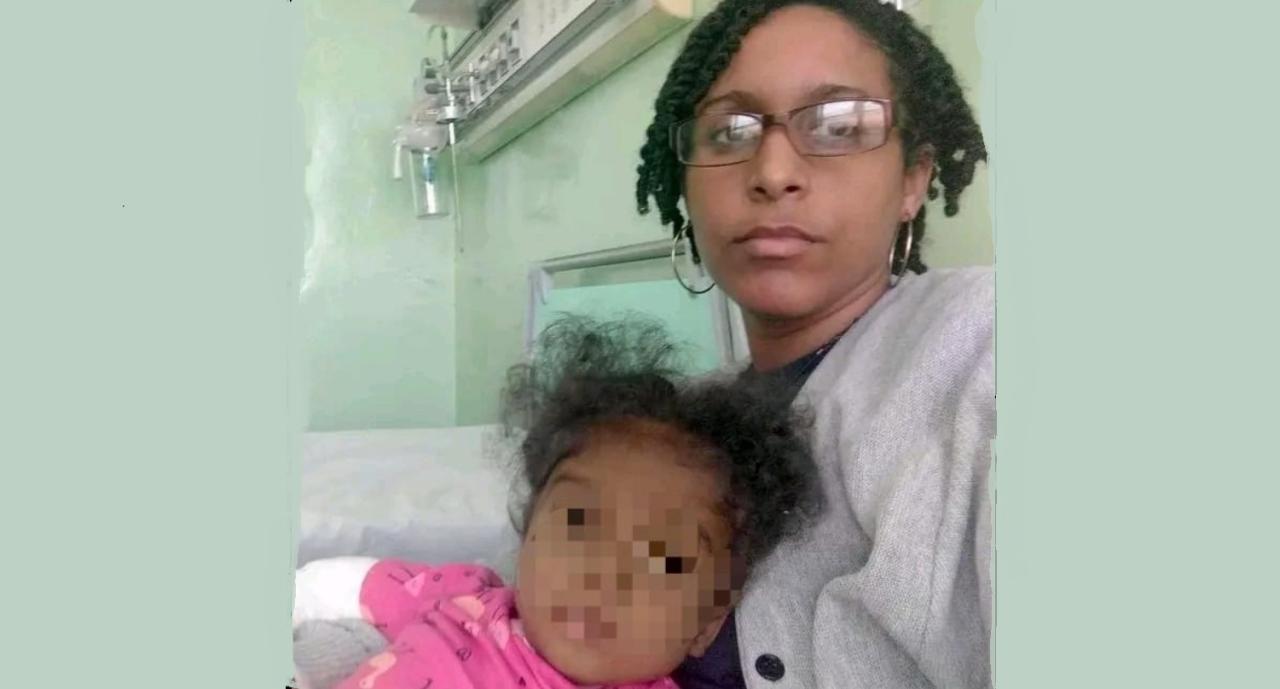Milagros Ortiz, the mother of the Cuban girl Amanda Lemus Ortiz who, has been waiting for a liver transplant for almost a year, complained about the false promises that Public Health officials have extended and bogus claims of care in her daughter's treatment amidst the case's media fallout.
On Monday Lemus Ortiz's parents met with representatives of MINSAP, but went away disgruntled, according to statements by Ortiz posted on Facebook by Cuban activist Yamilka Lafita.
"Thank you, to all the people who have given their support, and continue to do so. To you government officials: what you're doing is a crime. You're killing my girl... You don't want to try to do anything for her, claiming to make efforts you're not, turning your backs on us, remaining indolent in the face of our pain, and hers, because you saw her face, damn it, and it didn't affect you. You don't want to help me. You're condemning here to die here," said the desperate woman.
At another point Ortiz said that she only needs the support of her people, which "so far, has always been there, and that of God, who is up there."
"Mothers understand me. I'm going to keep fighting, and my girl is going to keep fighting," she said.
The little girl's health is deteriorating, and there are many days when one event or another worsens her suffering, and her family's despair.
Just this week Amanda suffered a high fever and low blood sodium. Although her condition called for attention in intensive care, the doctors ruled out taking her to the ICU due to fear of complications due to infections.
Cuban activists have organized a fundraising effort on the GoFundMe platform with the aim of covering the expenses of an operation for the girl outside Cuba. A goal of $20,000 has been set, and when this story went to press about 180 people had donated a total of $4,551. People on the island who wish to support the campaign are prevented from contributing through the page, so its promoters are devising other ways for Cubans to send money.
"Our Cuban cards are not accredited at any international bank. What we decided to do, after talking it over with the parents, is to convert all the money that is given in pesos or MLC into dollars, and to give it to a friend outside of the country with GoFundaMe for Amanda. #SOSAMANDA, please keep helping us position this hashtag on all the networks," wrote Laffita, known on social media as Lara Crofs.
Last week the Public Health Directorate of Havana struggled to do damage control regarding the girl's case.
The officials maintained that Lemus Ortiz "has been guaranteed the medical resources and supplies necessary for the treatment of her chronic pathology." But this statement contradicts the mother's testimony from almost a year ago, when Ortiz related that she had been "informed that the conditions to do the surgery did not exist, due to a lack of personnel and equipment."
Lemus Ortiz's care at the William Soler Children's Hospital began in February of 2022, when she was diagnosed with "a type-III bile duct cyst. Six days later she underwent surgery by the team specialized in hepatobiliary pancreatic surgery at this center, where a highly complex operation was carried out with satisfactory results in the immediate postoperative period," according to the official account.
The statement released concluded that: "a liver transplant has been indicated, from a living donor, for which coordination is being carried out with specialized institutions in other countries to meet this therapeutic need."
Given the deficiencies at the hospital and the delays in "coordination with specialized institutions in other countries, "the mother said that she has struggled "to gather the things necessary" for the operation, but she has been "denied, because one's not allowed to bring anything in from outside."
Calls for help from other Cubans on social media have become painfully frequent, belying the regime's continued efforts to portray Cuba as a medical powerhouse. Among those desperate calls are many pleading for humanitarian visas or off-island treatments.
The Cubadata project, through a Comprehensive Health Survey, shed light on and quantified a crisis that has inundated social media. Cuban authorities, to elude responsibility, invariably attribute the problem to the US embargo.
The data revealed by the survey is so resounding that it points to the existence of a humanitarian crisis.
Cubadata showed that there is a clear trend: it is harder and harder to obtain access to many medicines in Cuba. In fact, more than half of the Cubans surveyed (55.8%) described getting access to medicines as "impossible." If we add to this those who considered it "very difficult," 80.3% of the population surveyed faces serious problems obtaining the drugs they need.
Although the percentage of people who find it "impossible" to obtain medical care is lower (23.2%), it remains worrying. If we add those respondents who said they it was "very difficult," we can conclude that 57.6% face serious obstacles obtaining medical care.
